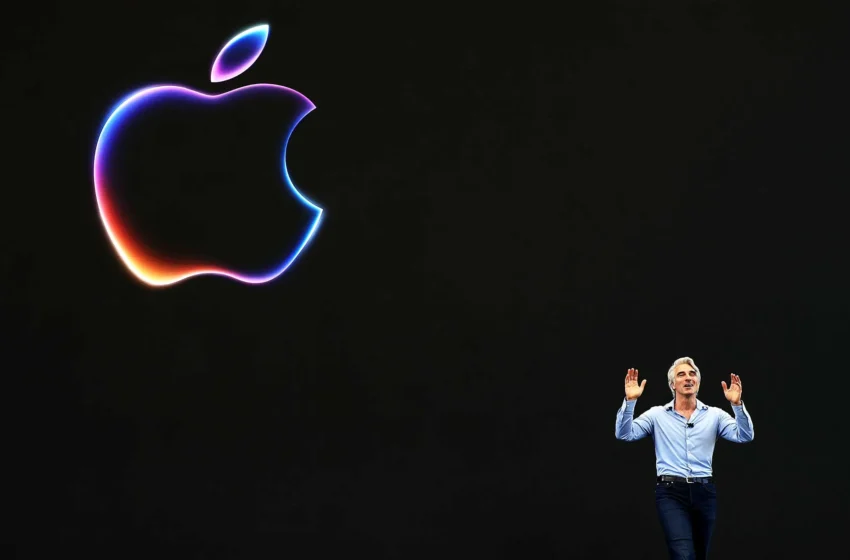
Will Apple Sell You an iPhone Based on Its New AI Features?
Apple’s new AI features rolled out on Monday are a big play for the company, which faces slumping iPhone sales and a public perception it’s lagging in the AI race. But will they entice people to upgrade?
The new “Apple Intelligence” functions are billed as AI that’s helpful, not creepy, and immediately useful. They’re also secure and protect privacy.
AI for the Rest of Us
If you haven’t been hiding under a tin-foil rock, then you already know that Apple’s new suite of AI features is pretty cool. The company unveiled a wide-ranging set of upgrades to its operating system at its developers conference Monday that will let users get the most out of their iPhones, iPads and Macs.
Apple’s new AI platform, dubbed Apple Intelligence, is designed to help summarise text, create original images and retrieve the most relevant data when you need it. It will also improve Siri, which has been a bit of a laughingstock among virtual assistants for the past decade or so.
The company also partnered with the San Francisco startup OpenAI to bring ChatGPT, an artificial intelligence system that learns from its mistakes, to its devices. This will give Apple’s AI a more personal touch that can learn over time to predict what you want and need.
That sounds awesome, but here’s the catch: You will need the latest iPhone, or a compatible Apple device, to take advantage of most of what the company is doing with its AI. That includes the latest iPhone 15 Pro models and the upcoming iPhone 16 that will come out this fall. That might be OK for some, but it could mean that 270 million Apple users won’t be getting the most out of their phones. That might not sound like a big deal, but in the world of AI, every little advantage counts.
AI for the Rest of You
When Apple touted a host of new AI features during its developer conference on Monday, it wasn’t just trying to keep up with the latest tech trends. It also hoped to lure back customers whose device purchases have been dampened by choppy economic conditions and resurgent rivals.
The Cupertino giant highlighted upgrades in its operating system, including a deep integration with ChatGPT maker OpenAI, that it believes will help make iPhones more useful and fun. It’s not enough to reverse iPhone sales declines, which the company has publicly acknowledged, but it might provide a much-needed boost for its loyal customer base.
To that end, Apple is rebranding its AI tools as “Apple Intelligence” and promising they won’t spy on their users. It’s the technology equivalent of a mild soap for sensitive skin, promising to wash away the scary, futuristic, and kind of creepy images that consumers have associated with generative AI.
Apple’s AI push also includes a new twist in its iMessage app, which will finally eliminate the distinction between blue and green bubbles that mark text from iPhones and Android devices. It will instead use a technology called Rich Communications Services to improve the quality and security of texts between iPhones and other mobile phones, which has been a long-running sore point. The change will be rolled out this fall.
AI for the Rest of the World
The next frontier for AI is in decision-making, both individual and enterprise. The technology can analyze and interpret massive structured and unstructured data sets much faster than humans, allowing businesses to make informed choices in real time. This is an enormous time-saver, not to mention a huge accuracy booster.
A growing number of firms are using AI to improve their processes, from customer service and sales optimization to inventory management and talent acquisition. The results are a more efficient business that delivers a better customer experience, which in turn leads to greater revenue and retention.
However, it is also important to note that there are risks associated with the integration of AI into the workplace. The IMF’s AI Preparedness Index assesses a country’s readiness in four areas: digital infrastructure, human-capital and labor market policies, innovation and economic integration, and regulation and ethics. The Index’s finding that advanced economies are more exposed to the effects of AI than emerging markets and developing countries highlights this risk.
AI is also transforming our lives outside the workplace, from providing personalized educational experiences to reducing pollution and even colonizing other planets. In all of these cases, AI can help us make better decisions, enabling more efficient and effective use of our time and resources. But we must be vigilant in addressing potential problems, such as bias from improperly trained algorithms or misuse (deepfakes and phishing) or legal concerns (AI libel and copyright). We can mitigate these risks by building trust in AI systems and encouraging a culture of ethical use.







